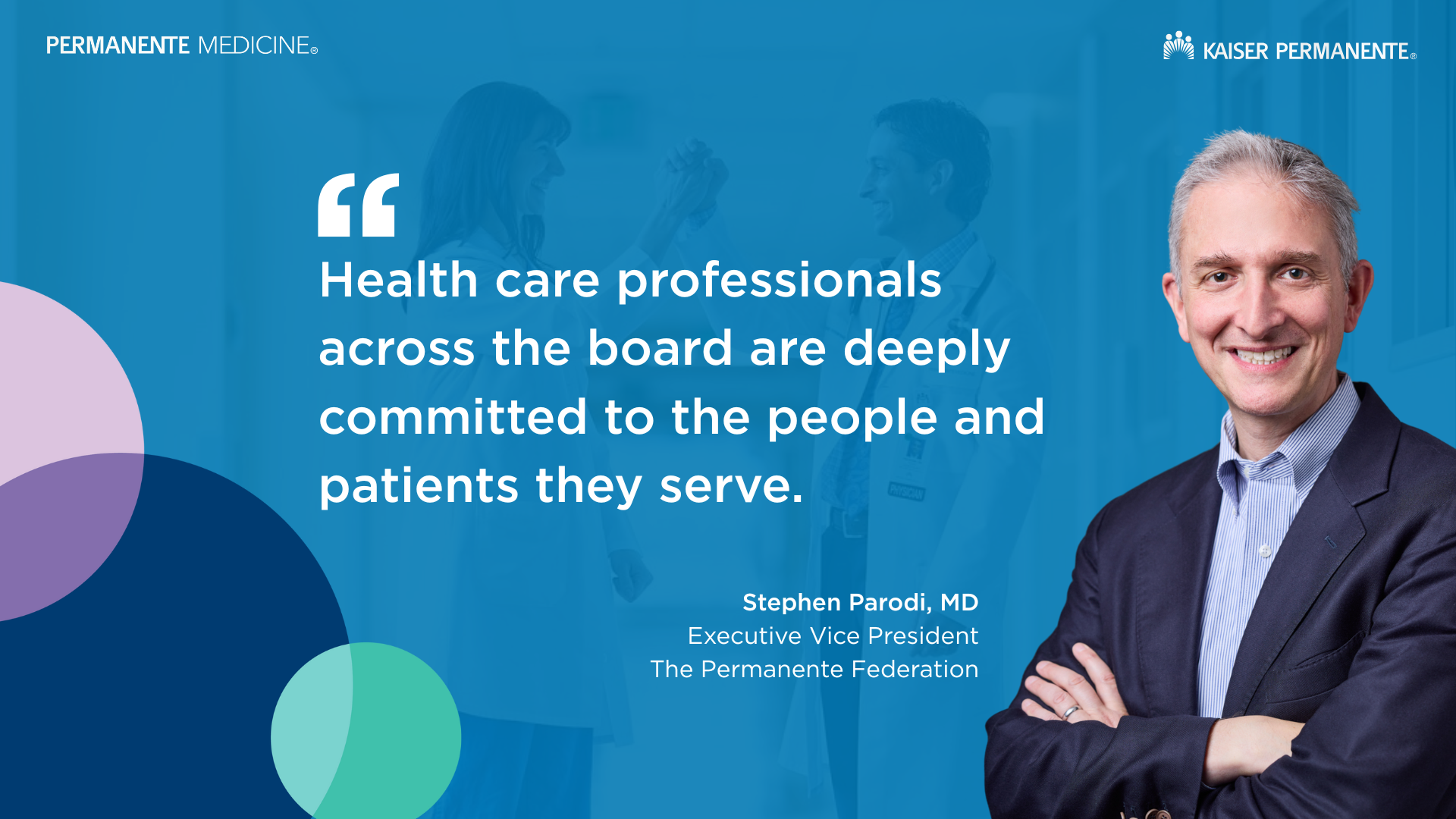Explore valuable lessons learned from Permanente physicians in 2025's rapidly changing health care landscape.

Making a case for clinical research as a priority in preventing firearm injury and death
By David Grossman, MD, MPH

Guns are a divisive topic in the United States. But the daily commitment of medical professionals to keep people alive and healthy is not controversial.
Every year, health care teams treat thousands of people with gunshot wounds and care for survivors and their families as they deal with the consequences of firearm injuries. The medical community is increasingly calling out firearm injury and death as a public health problem.
As a health care system with members across the country, Kaiser Permanente recognizes that it can and should address prevention of these tragedies. We are uniquely positioned to support systematic, scientific approaches to firearm injury prevention. We have a large, diverse membership, a sophisticated data infrastructure, and expertise in practical preventive health programs. Driven by our goal of healthier members and communities, we are committed to using these resources to study ways to prevent gun injury and death, the same way that we strive to continuously improve care for conditions such as cancer, diabetes, and heart disease.
Earlier this year, Kaiser Permanente launched a Task Force for Firearm Injury Prevention. I’m honored to be co-chair with Kaiser Permanente Senior Vice President and Chief Community Health Officer Bechara Choucair, MD.
Bechara and I, with other colleagues just published thoughts on how hospitals and health systems can work to prevent firearm injuries. Our commentary is at the National Academy of Medicine website. Our co-authors are Beth McGlynn, PhD, vice president for Kaiser Permanente Research and executive director of the Kaiser Permanente Center for Effectiveness and Safety Research; first author George Isham, MD, HealthPartners Institute; and Jay Bhatt, DO, American Hospital Association.
Why gun safety is a public health issue
In our commentary, we note the health impact of guns, with more than 38,000 U.S. firearm deaths in 2016. Almost everyone in the United States, at some point in their lives, will know someone injured or killed by a gun. As a first step in addressing this public health problem, we call for health care systems to learn the causes and effects of firearm-related injury in their communities. Understanding these factors is the first step toward prevention.
We ask for collaboration among organizations to develop and share knowledge about evidence-based programs to prevent gun injury and death, whether from accident, homicide, or suicide.
Caring for and working with people already affected by gun injuries is crucial for effective prevention.
We call for funding studies to identify who is at high risk of firearm-related injury or death so we can develop ways to help those individuals and the communities where they live. Kaiser Permanente is catalyzing these efforts with $2 million to study ways to stop gun injury and death. We hope this investment in research by Kaiser Permanente scientists will accelerate much-needed work in this area.
Our commentary highlights newly released workshop proceedings from the National Academies of Sciences, Engineering, and Medicine: Health Systems Interventions to Prevent Firearm Injuries and Death. Kaiser Permanente was a major sponsor of the October 2018 workshop, with the American Hospital Association. We hope funders and researchers will use the findings from the workshop as the basis for new studies and interventions on firearm safety. Health systems with embedded research centers like Kaiser Permanente are well poised to do practical research such as this.
How research can help in preventing gun injuries and deaths
To develop practical preventive health programs to reduce gun injuries and deaths, researchers can start by studying the impacts of guns in our communities, the factors that put people at risk, and the paths to effective guidelines, conversations, and interventions. Caring for and working with people already affected by gun injuries is crucial for effective prevention. The Task Force is committed to including the voices of people who have experienced the effects of gun injury as we move forward.
Please read our commentary. I hope our ideas will be a starting point for conversations with friends, neighbors, family members, and physicians and care teams about what health care systems can do to prevent firearm injuries and deaths to make our communities safer.
David Grossman, MD, MPH, is a pediatrician and senior associate medical director, Market Strategy and Public Policy, for the Washington Permanente Medical Group, senior investigator at Kaiser Permanente Washington Health Research Institute, and co-chair of the Kaiser Permanente Task Force for Firearm Injury Prevention. This piece originally appeared on Medium.com


